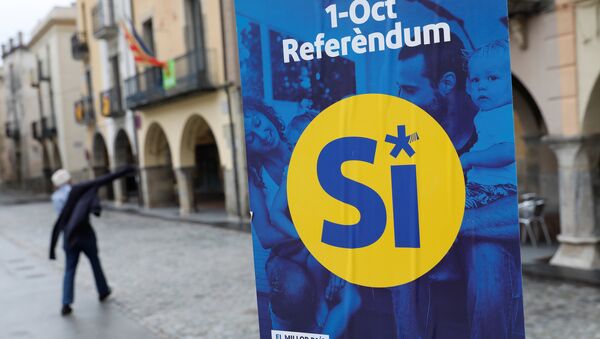Assisted by the Mossos d'Esquadram, Catalonia's regional police, the Madrid forces have seized voting materials and shut down an undetermined number of voting locations in the breakaway province.
According to central Spanish government sources in Madrid, police have searched approximately 1300 of the estimated 2135 schools in Catalonia, seeking evidence of voting. Reports claim that 163 of the schools searched by police are now occupied by those stating their intention to vote, cited by the BBC.
After being declared illegal by Spain's central court, Madrid has sent thousands of its police troops to stop the popular referendum, and state security forces are upping the ante against those intending to vote, attempting to clear schools of families waiting to cast their ballots.
Madrid security forces have also occupied the Catalan government telecommunications center, according to reports.
Police have been especially active in making sure that voting in schools does not occur, repeatedly arriving at locations occupied by families wishing to vote and reading them Madrid's decree invalidating the referendum.
A sociologist occupying a Barcelona school on Friday evening claimed that police had shown up at the location four times.
"They read us out the part of the court order that says no activities related to the preparation of the banned referendum are allowed," the woman said, cited by Reuters.
Referendum organizers have recommended that voters arrive at polling stations at 5 a.m. local time on October 1, and wait for the schools to open one hour later.
Catalan regional government organizers have insisted that any resistance to police actions to stop the vote must be peaceful, cited by Reuters.
"We must be sure there are lots of people present of all ages," the vote organizers stated.
Madrid officials have warned that staffing volunteers at voting stations can be fined up to 300,000 euros for their participation.
Catalonia, with a unique language and culture, is not recognised as a sovereign nation under the terms of the Spanish constitution.
Calls for an independent Catalonia have increased over the past five years as government-instigated austerity programs implemented after gross financial mismanagement — similar to those decreed in Greece in 2014 — have significantly affected the Spanish people.



